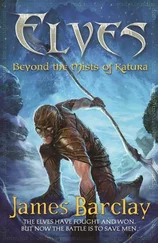“Non. Eef de beeg bear com’ ’long an’ smell de grub, he kin bus’ de cache. We ain’ kin build de cache so strong de bear can’t bus’ heem. Eef de canoe on top de cache de bear bus’ de canoe all to hell for git de grub.”
“Do you expect to find this stuff here when we get back?” asked the girl in surprise.
“Mebbe-so. Mebbe-so not. Eef som’one com’ ’long an’ need de grub for kep’ from starve, he kin open de cache an’ tak’ joost so mooch lak’ he need—no mor’. Dat good. Eef he tak’ mor’—eef he rob de cache dat ver’ bad. Som’one shoot um, mebbe-so. Mebbe-so de Mounted ketch um an’ put um een de jail for so long till he hav’ die. Dat ain’ no good to rob de cache.”
After a hasty meal the canoe was carried across the point to the Coppermine, and the duffle followed, some five or six hundred pounds, made up into light packs, as the girl had insisted that she do her full share both in the handling of the canoe, and on the portages. “I’ll love it!” she had cried enthusiastically, “I’m tired of being just a passenger. I’m almost glad the others ran away!”
The duffle was stowed amidships, the girl took her place at the bow paddle, and the long tedious ascent of the Coppermine was begun.
As the canoe passed out of sight around a bend of the river, Amos Nixon, with a grin, rose from his place of concealment behind a bunch of scrub, and struck out on foot for his camp, a half-mile down the river. “Run off three out of four of ’em anyhow,” he muttered, “an’ plenty of time to git the other one later. I’ve got the chanct of a lifetime right here if I play my cards right. To hell with goin’ to the coast fer supplies when I’ve got a hull cache full of ’em right in under my nose.”
Corporal Downey, R.N.W.M.P., knelt in his canoe with eyes to the front and paddle trailing, ready at a twist of the wrist to shoot the frail craft to the right or the left to keep from plunging headlong onto rock or shallow.
Many years in the service had not dulled the keen delight with which this veteran guardian of the untracked wastes always descended a swift-water river. And the Bear was one of his favourites. Swift-flowing, icy-cold, clear as a crystal, it rushes from Great Bear Lake to the Mackenzie in a series of rapids and shallows and swift deep stretches that are the delight of the experienced canoeman. The banks shot past in an ever-changing panorama of beauty. Long stretches of grassy shore fairly blazing with its brilliant patches of wild flowers, gave place with startling abruptness to steep, cut banks, and they in turn, to perpendicular ice cliffs, their bases worn and cut by the swift-flowing water into all manner of grotesque and fantastic carvings. The roar of the rapids by means of which the river plunges through the canyon of the Franklin Mountains was music to the ears of the grizzled monitor of the outlands.
But this day he was not thinking so much of the roar of the rapids, nor of the wild beauty of changing shores. Ever since his meeting with Irma Boyne he had been wondering, not exactly worrying, but wondering how she would fare in the indescribably wild and desolate country beyond Great Bear Lake. A hundred times in the week or more that he had paddled along the shore of the great lake, he had found himself wondering, and each time he had dismissed the girl from his mind with an effort. But always after a few miles, she would be there again, introduced by memory of a word, a look, a smile, as they had talked together across the little fire.
“It’s because she’s like—her,” muttered the man, between clenched teeth. “God! Can’t a man ever forget?” And then, for miles, and miles, and miles, as the canoe shot swiftly westward, the officer’s thoughts lingered in a reverie of other years, of his earlier days in the Service, of the little Hudson’s Bay post at Lashing Water, of the old white-haired, whist-playing factor, of Murdo MacFarlane, and of the passing of Margot Molaire.
He had been Corporal Downey then, and he is Corporal Downey now, and the reason for this only Corporal Downey knows. Times without number he has been recommended and cited for promotion, and each time he has steadfastly refused promotion. Sergeants and commissioned officers alike have tried, time and again to find the answer, and have failed. Admittedly one of the most capable men the Service ever listed upon it’s roll, he has been tendered an Inspectorship, coupled with unofficial hints from high officials that a Superintendency was not so far in the offing. But he declined the honour, as many times he has declined the Sergeantcy, and the reason no man knows. So Corporal Downey has remained through the years the riddle of the Service—a man of large calibre, kindly, efficient, wise. A man all for the Service, and yet, even among his intimates, a man of mystery—a man within himself.
Bar Rock, with its fantastic colouring of high lights and shadows, loomed ahead, the speed of the current slackened, and Downey began leisurely to paddle. A half-mile above the junction of the Bear and the Mackenzie, upon a grassy flat upon the left bank of the river, the white canvas of a little tent caught his eye and even as he swung the bow of his canoe toward it, the tent collapsed and a man began to fold it for packing. A canoe was drawn up on the beach, and beside it were piled various articles of camp gear. Evidently the man was in the act of breaking camp. The officer recognized him, and before he beached his canoe he was smiling. “I’ll just slip up on him this time without his knowin’ it,” he thought, and without lifting the paddle from the water, shot the canoe shoreward. The man, still busy with the tent, had not looked up. “Hello, Downey!” he called, suddenly, “what in the devil you doin’ all that splashin’ around for? Don’t you know you’ll roile the river up, an’ kill all the fish?”
The officer’s smile broadened as he stepped out of the canoe and drew it up beside the other: “Hello, Gus! What you doin’ here? An’ where in thunder you be’n for the past six months? Last time I saw you was, let’s see—it was over on the east end of Slave Lake. You remember? Your dogs were laid up with sore feet, and you didn’t have grub enough on hand to last a week. You wouldn’t go back with me to Fort Resolution and be saved from starvation. It was cold, if I remember—let’s see.” Both had seated themselves on the grass, and Downey reached for his notebook, and thumbed its pages. “Here it is: January sixth: Investigatin’ report of Indian family starvin’ on McLeod Bay. Made nearly complete circle of bay, January 6th, 8th, 9th. No evidence of any Indians on bay this winter. At noon of 10th, came upon camp of Gus Janier. Had not moved camp for a week. Doctorin’ his dogs’ feet. Food for only a few days in camp. Refused offer of food, also refused to accompany me to Fort Resolution. Has seen no Indians around east end of lake. Remained in his camp two hours, then struck out for Resolution. Temperature, 45. Wind, North-east, 30 miles.”
As the officer returned the diary to his pocket, the other regarded him with a grin: “Ain’t you forgot somethin’?” he asked.
“No—o, I guess not—nothin’ of any consequence. Why?”
The younger man shook his head in mock solemnity: “You’re gettin’ old, Downey, an’ careless—careless with your diary, an’ careless of Government supplies. I don’t keep any diary myself, but if I did I could turn back to that same date—January 10th, wasn’t it. Here’s what it would say: ‘Found on ice near water-hole, six pounds bacon, twenty-five pounds smoked fish, ten pounds flour, one quarter pound tea.’ Old man Downey is a good old soul. Damn his eyes! You must have lost that stuff off your sled when you pulled out of my camp.”
Читать дальше












